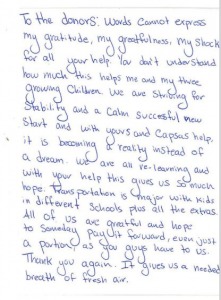Sexual assault is a devastating experience that can have long-term physical and emotional effects on survivors. Unfortunately, many survivors also face disbelief and victim-blaming when they disclose their experiences to others. As a nonprofit organization dedicated to supporting survivors of physical and sexual abuse, CAPSA believes employers play a crucial role in creating a culture of support and believing survivors.
The Importance of Believing Survivors
One of the most damaging experiences for survivors of sexual assault is not being believed. When survivors are believed and supported, it can help them begin healing and move forward with their lives.
When survivors courageously share their experiences, it takes immense bravery and vulnerability. By believing them, we create a safe and supportive environment that validates their pain and their truth. This validation can be transformative, helping survivors overcome the self-doubt and shame that often accompany their experiences.
Moreover, when we believe survivors, we reinforce a culture that rejects victim-blaming and shatters the walls of silence and stigma surrounding these deeply sensitive issues. This cultural shift opens the door for survivors to seek the support they need, whether it be from friends, family, or professional resources like organizations such as CAPSA.
Ultimately, by believing survivors, we stand together in solidarity, providing a collective voice that demands justice, empathy, and compassion. It is through this collective effort that we can break the cycle of violence and create a society that prioritizes the safety and well-being of all individuals, free from the devastating impact of domestic violence and sexual assault.
How Employers Can Support Survivors
Employers can play a crucial role in creating a culture of support and believing survivors. Here are some ways that employers can support survivors of sexual assault in the workplace:
- Provide Time Off: Survivors of sexual assault may need time off to attend counseling or legal appointments, and employers should be willing to provide this time off without penalty. Additionally, survivors may need time off to deal with the physical and emotional effects of their experience, and employers should provide this time off as well.
- Create a Safe and Supportive Work Environment: Employers should create a work environment that is safe and supportive for survivors. This can include providing a private space for survivors to make phone calls or take time off for appointments related to sexual assault.
- Train Employees: Employers can also provide training to all employees on how to recognize and respond to sexual assault in the workplace. CAPSA’s Community Engagement department specializes in providing this training and can be contacted for scheduling at 435-753-2500.
- Implement Sexual Assault Policies: Employers should have policies in place that address sexual assault in the workplace. These policies should include a clear reporting process as well as support and resources for survivors.
Here to Help
At CAPSA, we are committed to providing survivor-centered services that meet the unique needs of everyone who seeks our support. When you call CAPSA at 435-753-2500, you can expect a warm and welcoming response, information and support, advocacy and support, and confidentiality. We want survivors to know that they are not alone and that they have the power to make informed decisions about their safety and well-being. If you or someone you know is experiencing domestic violence or sexual assault, please don’t hesitate to call CAPSA.

